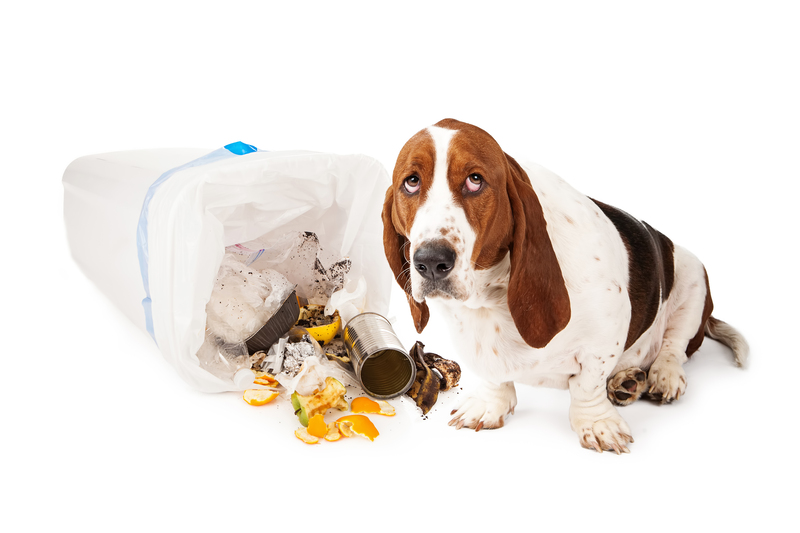Minimizing Waste: Recycle Your Pots and Pans
In today's world, environmental sustainability is more important than ever. With landfills growing and resources depleting, individuals are seeking impactful ways to contribute to a greener planet. One often-overlooked opportunity is to recycle your pots and pans. If you've ever wondered what to do with old cookware, this comprehensive guide will walk you through how to recycle old cookware, the benefits, and tips for embracing a more sustainable kitchen.
Why Recycle Old Pots and Pans?
Every year, millions of pots and pans end up in landfills. These common kitchen tools are typically made from metals like aluminum, stainless steel, or cast iron, all of which can take hundreds of years to decompose. By choosing to recycle cookware instead of discarding it, you:
- Reduce landfill waste and free up landfill space
- Conserve natural resources by reusing valuable metals
- Lower greenhouse gas emissions associated with the mining and production of new metals
- Encourage a circular economy by maximizing the lifespan of materials
Recycling your pots and pans is a simple step with significant environmental impact. Let's explore the many facets of this eco-friendly choice.

The Life Cycle of Your Cookware: When is it Time to Recycle?
Cookware is built to last, but eventually, even the sturdiest pots and pans show signs of wear and tear. Wondering when it's time to upgrade and recycle your pans?
Signs Your Pots and Pans Need Replacing
- Warped bases cause uneven cooking and can be unsafe
- Nonstick coatings are peeling or flaking, risking food contamination
- Corrosion, rust, or deep scratches have appeared
- Handles are wobbly, loose, or broken
- The cookware no longer functions as intended or safely
When pots and pans reach the end of their useful life, it's vital to handle them responsibly. The next step? Exploring your recycling options.
Types of Pots and Pans That Can Be Recycled
Most metal cookware is recyclable. This includes:
- Stainless steel - Highly sought after by scrap recyclers
- Aluminum - Lightweight and valuable in the recycling market
- Cast iron - Hefty but extremely recyclable
- Copper - Occasionally used in specialty cookware; valuable for scrap
However, not all parts of your pots and pans are suitable for recycling. Here are the common issues:
- Plastic handles or glass lids may need to be separated
- Nonstick coatings (like Teflon/polytetrafluoroethylene) can complicate recycling; check your local facility's policy
- Ceramic-coated pans may be excluded from metal recycling streams
When in doubt, always call your local recycling center for specific guidelines before dropping off old cookware.
How to Prepare Old Pots and Pans for Recycling
To recycle old cookware effectively and safely, follow these steps:
1. Clean Thoroughly
- Remove all food residue, oils, and debris
- Wash with mild soap and dry completely
Tip: Clean items process more efficiently and fetch a better price (if selling as scrap).
2. Remove Non-Metal Parts
- Detach plastic, rubber, or wooden handles if possible
- Separate any glass lids -- these may need to be recycled through a different stream
3. Sort by Material
- Keep similar metals together (aluminum vs. stainless steel) to facilitate recycling
Ways to Recycle or Reuse Your Cookware
There are several responsible options to minimize waste from old pots and pans. Let's explore each one in detail:
1. Drop-Off at Scrap Metal Facilities
- Search for local scrap metal yards or recycling centers accepting household metals
- Many facilities pay for certain metals like aluminum or copper
- Check the facility's website for guidelines on accepted items
2. Municipal Recycling Programs
- Some cities allow metal pots and pans in curbside recycling; confirm with your waste management provider
- Larger items often need to be taken to a designated drop-off site
3. Reuse or Upcycle in Creative Ways
- Convert old pans into planters for herb gardens or flowers
- Repurpose lids as serving trays or wall decor
- Turn cast iron pans into rustic wall clocks
- Use stainless steel vessels as storage bins in workshops or garages
Upcycling saves energy and gives your cookware a charming second life!
4. Donate to Charities or Community Groups
- If your old cookware still functions, charities, churches, and shelters often welcome donations
- Thrift stores commonly accept gently used kitchen items
- Always clean thoroughly and check donation guidelines
5. Specialty Recycling Initiatives
- Some manufacturers or retailers offer take-back programs for old cookware when buying new sets
- Earth911.com and other directories help you find specialty recyclers by zip code
What Happens to Recycled Pots and Pans?
Once your pots and pans enter the recycling process:
- Metal is separated by type (steel, aluminum, copper, etc.)
- Cookware is shredded, melted, and purified
- The pure metal is reformed into new products -- anything from new pans to car parts or building materials
- This closed-loop process reduces mining, saves energy, and ensures that materials stay in use for generations
Challenges and Solutions When Recycling Cookware
Nonstick Coatings
Most common issue: Nonstick pans are tougher to recycle due to their coatings. Some facilities accept them, others don't. Solutions:
- Check with the local recycler or look for specialty programs (some cookware brands now offer recycling for their products)
- Consider upcycling if recycling isn't an option
Mixed Materials
- Composite pans (metal base, wooden handle, glass lid) complicate the recycling process. Disassemble as much as possible to maximize recyclability.
Tips for Reducing Cookware Waste in the Future
Minimizing waste goes beyond recycling -- it starts with conscious purchasing and care. Here's how to future-proof your kitchen:
Invest in Durable, Repairable Cookware
- Buy high-quality stainless steel or cast iron pans that last for decades
- Seek out brands offering replacement parts (handles, lids) or repair services
Proper Maintenance
- Handwashing pans helps preserve nonstick and avoid warping
- Re-season cast iron regularly to maintain its nonstick qualities
- Store cookware carefully to avoid scratches or dings
Responsible Disposal
- Pass on cookware you no longer use to friends, family, or local charities
- Stay informed about new recycling programs in your area
Common Questions About Recycling Old Cookware
Can I put pots and pans in my household blue recycling bin?
In most cases, no. Household recycling is designed for items like aluminum cans or plastic bottles. Large or awkward items may damage recycling equipment, so they need to go to a proper scrap metal facility.
What about Teflon pans?
Many recyclers won't accept pans with nonstick coatings. If that's your only option, consider contacting the manufacturer for take-back schemes or upcycle at home.
Are rusty or burnt pans recyclable?
Yes! Surface rust or burnout typically doesn't affect the recyclability of metal. Just clean off loose rust if possible.
How can I find a kitchenware recycling program near me?
Check your city or county's website for recycling options, or use search tools like Earth911 or RecycleNation. Many retailers also have car park recycling events for hard-to-recycle items.

The Bigger Picture: Eco-Friendly Kitchens Start with You
Recycling your pots and pans is an important step, but the true goal is a zero-waste kitchen. By adopting mindful purchasing, proper maintenance, upcycling, and responsible disposal, you minimize your environmental footprint.
- Choose reusable over disposable products
- Favor products with minimal or recyclable packaging
- Compost food waste and recycle as much as possible
With every step, you join a growing movement making an impact.
Conclusion: Small Steps Make a Big Impact
It's easy to overlook old kitchenware, but recycling pots and pans can make a big difference. By following the simple steps outlined above, you'll ensure your cookware lives on in new forms for years to come. Always check your local recycling guidelines, upcycle where possible, and encourage friends and family to do the same.
Every pot and pan that's recycled is one less item in a landfill. Start minimizing kitchen waste today -- and cook up a cleaner, greener world for tomorrow.